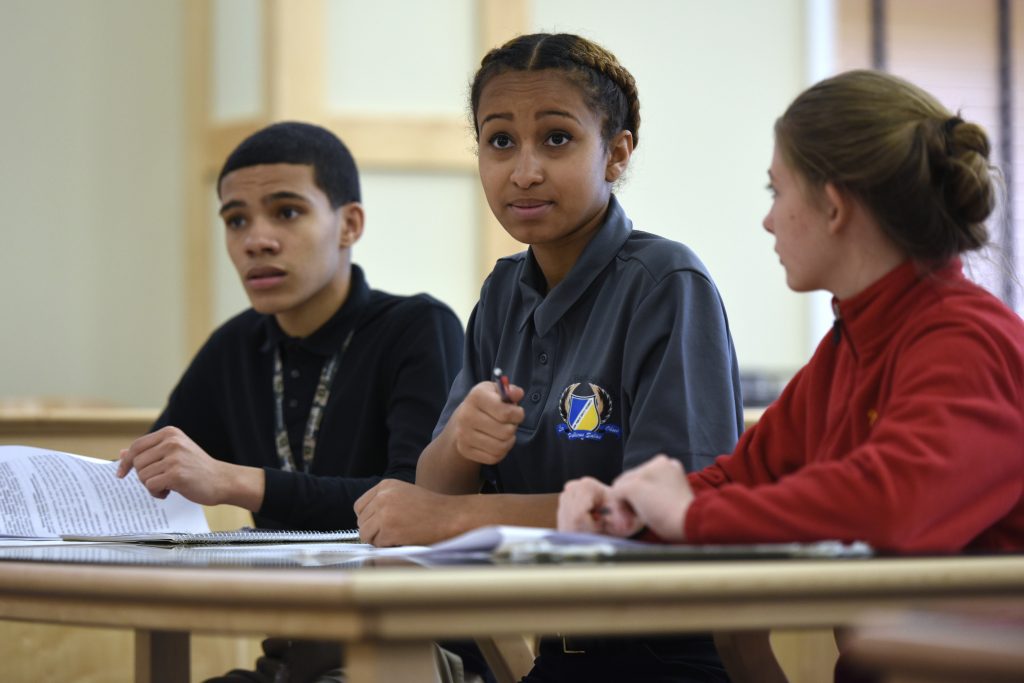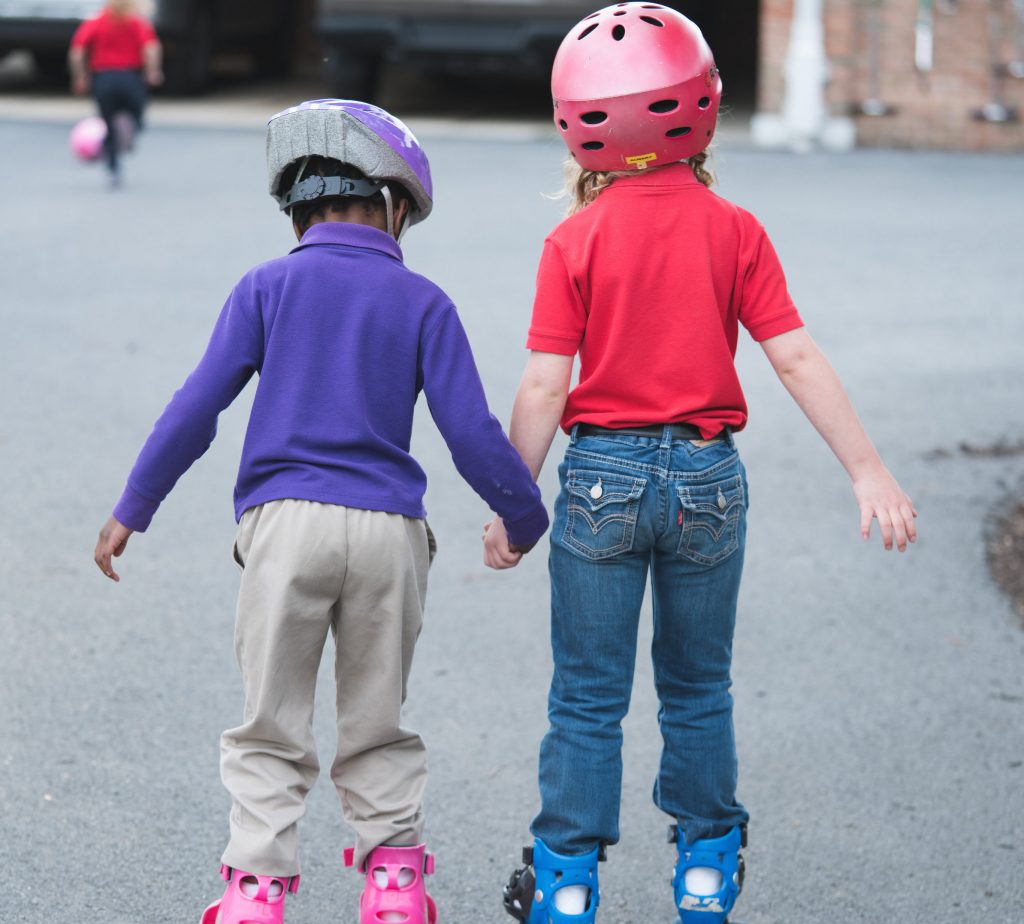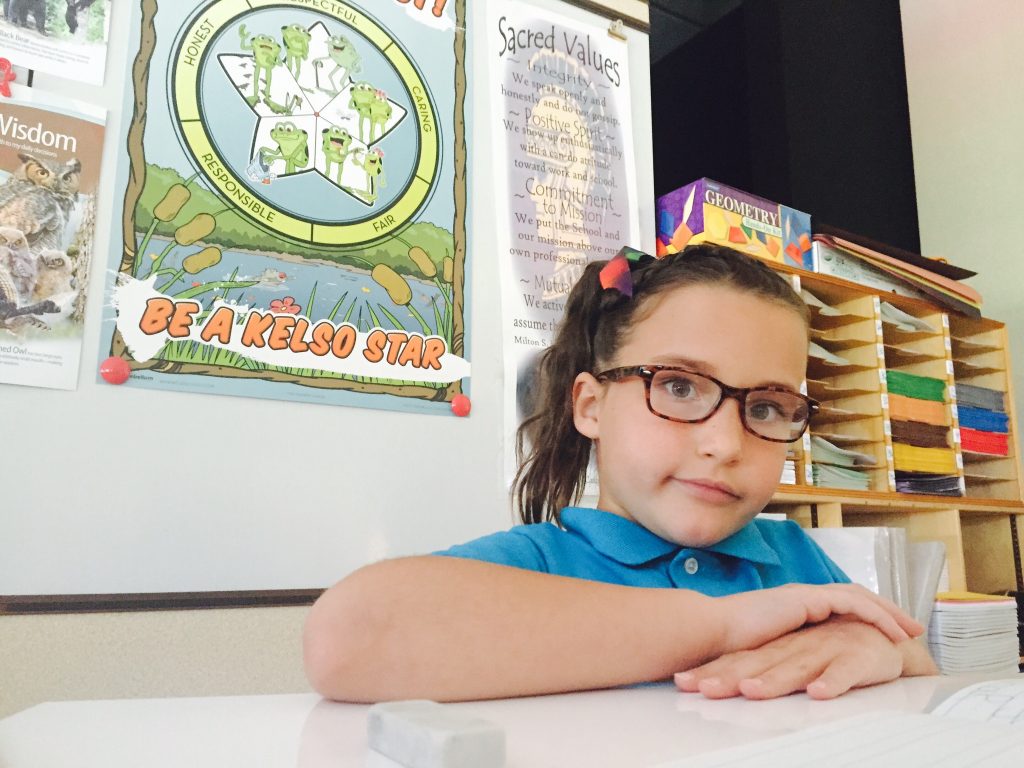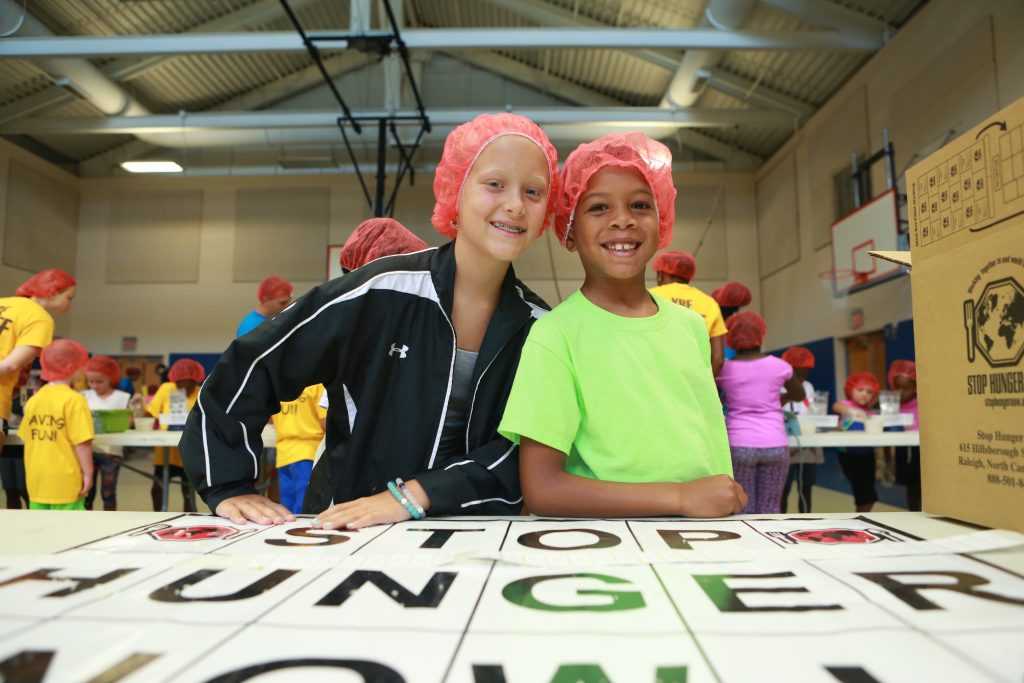Self-Improvement Month: Building the Character and Leadership Employers Value
In a 2014 CareerBuilder study, 77 percent of employers surveyed said “soft skills” associated with workers’ personalities are equally as important as job-related skills. Employers are looking for people who have a strong work ethic, a positive attitude, self-motivation, dependability, a team-oriented mindset, and the ability to prioritize and stay organized. These personality traits aren’t items students should list on a resume—they’re character traits they need to display.
But for students growing up in poverty, their environment may lack structure and cause them to compromise their character. If they haven’t learned how to work hard, bounce back from failure and grow their character, their hopes and dreams can be easily squandered.
To position students for success in the future workforce, character-building and academics must go hand in hand. The social and emotional learning (SEL) program at Milton Hershey School promotes character and leadership development, and it is based on the idea that all students should act with a growth mindset.
In honor of National Self-Improvement Month, see how Milton Hershey School’s SEL program is positioning students for lifelong success through strong character, leadership and self-reflection.
Building on the School’s Mission
When students enroll at MHS, they quickly learn about the school’s four Sacred Values— commitment to mission, integrity, positive spirit and mutual respect. Inspired by founder Milton Hershey’s outlook on life, these values are the backbone of the SEL program.
To teach students to act with compassion and respect for humanity, teachers and staff start by developing students’ moral compass at a young age. As they get older, students learn how to view situations through their moral lens and act with strong character. As they gain SEL skills, they learn to ask themselves:
- Are you an honest person who values truth?
- Do you believe your fellow man is just as important as yourself?
- Are you going to keep trying when things get hard?
- Will you believe the best about situations?
Understanding Social Intelligence and Self-Improvement
For many students, especially those coming from unstructured environments, character-building lessons are often difficult to accept. MHS may feel like a different culture, and older students may feel like their personalities are being constrained.
When students understand they aren’t being asked to change—they’re simply gaining additional skills—they begin to cultivate social intelligence.
This is a major component of the SEL program, and it includes code-switching lessons. For example, students may speak one way to their best friends but learn how to alter the way they speak and conduct themselves during a professional presentation.
To build a foundation of social intelligence, the first SEL lessons of the MHS school year revolve around self-reflection. Along with goal-setting, teachers and staff design lessons around personal well-being, self-esteem development, and overcoming emotional challenges. The goal is to teach students to have the desire to grow, stay curious, and regularly improve themselves.
Developing School-Wide SEL Curriculum
While the SEL curriculum is an effective guide, adults shape the lessons and make relevant connections with students. Whether it’s connecting a “compromising and finding common ground” lesson to the Civil Rights movement or giving students real-world opportunities to practice self-sufficiency, it takes time and effort for students to fully grasp SEL skills—just like any academic subject.
Lessons that revolve around social intelligence can be exciting for younger students—who enjoy learning about social norms like dressing for different occasions—but difficult for older students. Older students often appreciate lessons involving diversity and respect as a way to celebrate their differences, but find it difficult to understand abstract concepts like compromise.
To make these abstract concepts a reality, MHS incorporates SEL lessons school-wide, both in the classroom and in student homes.
Molding Compassionate Citizens and Future Leaders
Social and emotional learning is more than building strong character. It’s shaping future leaders to work effectively with others. Every student will eventually lead in some capacity, so what kind of leaders do we want to shape?
As teachers and staff build relationships with students and serve as role models, students can imagine the type of leader they want to be and continue making honest decisions, maintaining positive attitudes, and overcoming challenges—significant “soft skills” that most employers value.
Learn more about the character and leadership development program at MHS.





